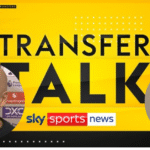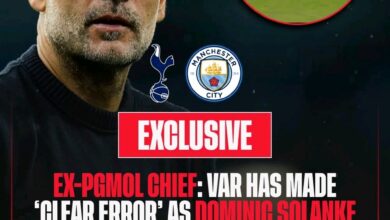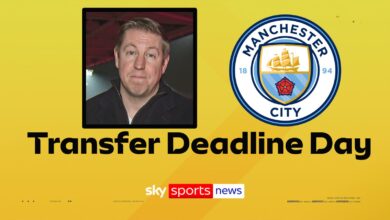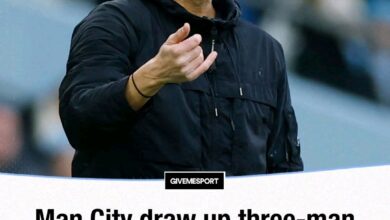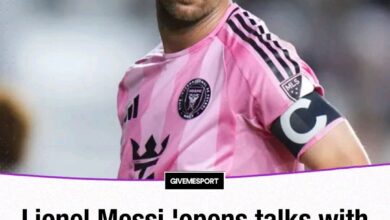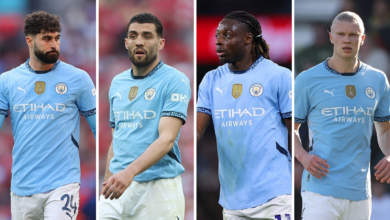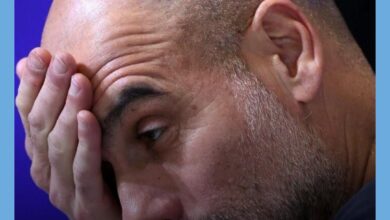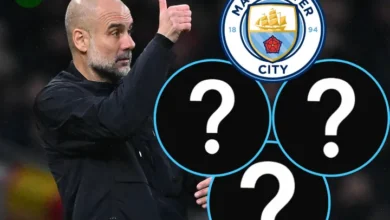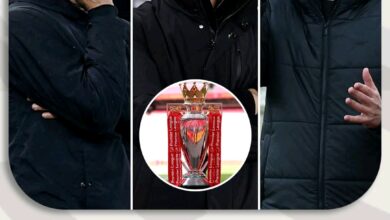Man City signing CONFIRMED by Fabrizio Romano: Here we go!
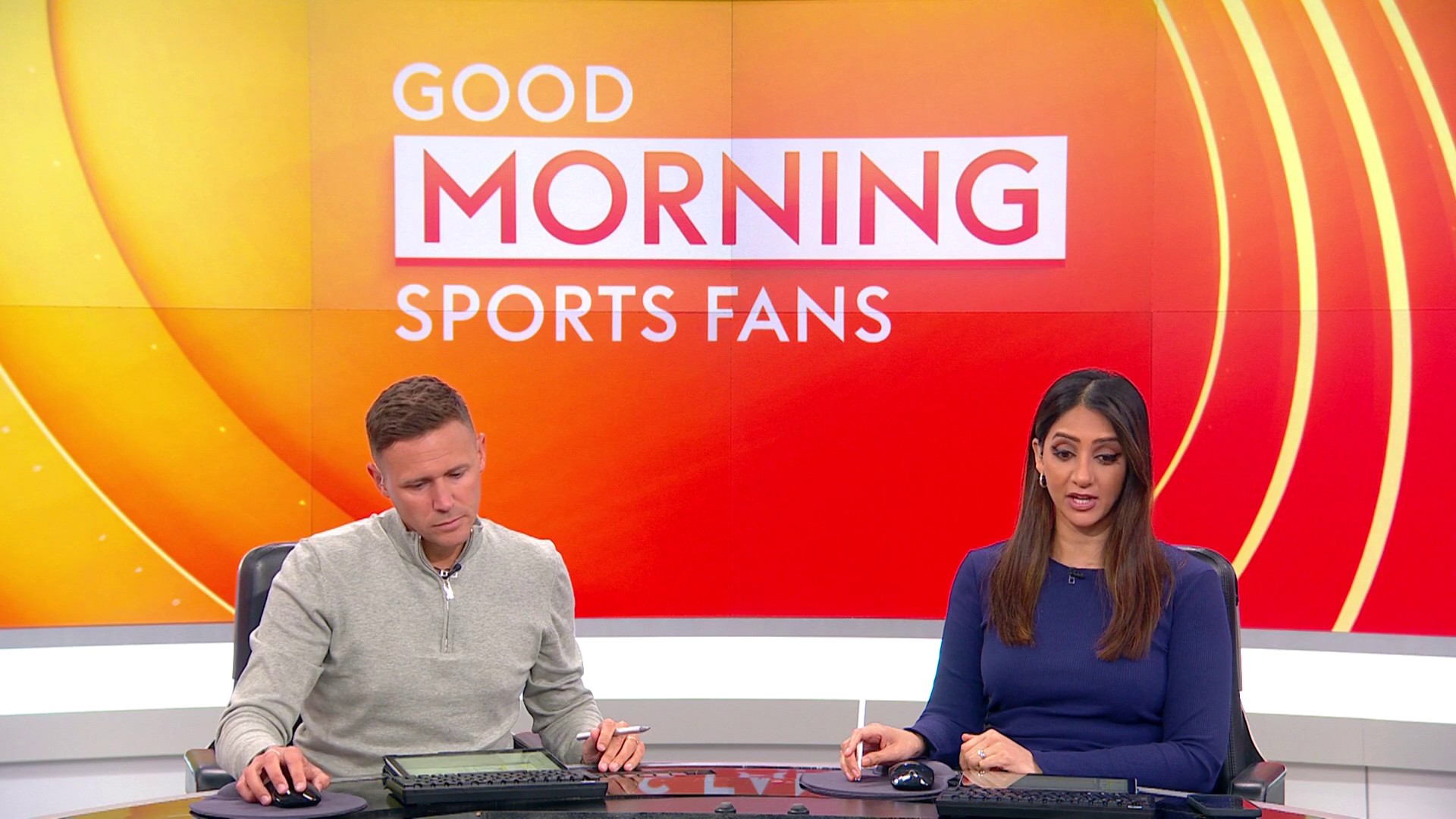
Manchester City’s approach to the transfer market has undergone a significant transformation in recent years, shifting from high-profile, mega-money signings to a more calculated strategy focused on securing the world’s most promising young talents. This evolution represents not just a change in transfer philosophy, but a fundamental reimagining of how elite football clubs build for sustained success in an increasingly competitive landscape.
The latest manifestation of this strategic pivot comes in the form of 18-year-old striker Mahamadou Sangare, whose imminent move from Paris Saint-Germain to Manchester City has captured the attention of football enthusiasts worldwide. According to renowned transfer expert Fabrizio Romano, the deal represents more than just another youth acquisition—it symbolizes City’s commitment to developing the next generation of football superstars under the tutelage of one of the game’s greatest managers, Pep Guardiola.
The Making of a Transfer Sensation
Romano’s declaration of “Here we go, confirmed” has become synonymous with completed transfers in the modern football landscape, and his recent announcement regarding Sangare carries particular weight given the circumstances surrounding the move. The 18-year-old striker is set to undergo medical examinations with Manchester City before signing what sources describe as a long-term contract, marking a significant coup for the Premier League champions in their ongoing pursuit of elite young talent.
The significance of this transfer extends beyond the mere acquisition of a promising player. Sangare’s move from PSG to City on a free transfer represents a masterclass in modern recruitment strategy, highlighting how clubs can secure exceptional talent without the astronomical fees that have become commonplace in today’s transfer market. This approach aligns perfectly with Financial Fair Play regulations while simultaneously building a foundation for future success.
Understanding Mahamadou Sangare: A Profile in Excellence
To truly appreciate the magnitude of Manchester City’s acquisition, one must delve into the remarkable profile of Mahamadou Sangare himself. The Mali-born France U18 international has established himself as one of the most prolific young strikers in European football, with statistics that would make even seasoned professionals envious.
Sangare’s record with PSG’s U19 team tells a story of consistent excellence and natural goal-scoring ability. His tally of 33 goals in 35 appearances represents not just impressive numbers, but a demonstration of his ability to find the back of the net with remarkable consistency at youth level. This conversion rate of nearly one goal per game suggests a player who possesses not only technical ability but also the mental fortitude to perform under pressure consistently.
Perhaps even more impressive is Sangare’s performance in the UEFA Youth League, where he has demonstrated his ability to rise to the occasion against elite opposition. His record of eight goals in six appearances includes standout performances against some of Europe’s most prestigious academies, including hat-tricks against Atletico Madrid and Bayern Munich. These performances against historically strong youth systems underscore Sangare’s potential to succeed at the highest levels of the game.
The Physical and Technical Attributes
Sangare’s playing style is characterized primarily by his exceptional pace and clinical finishing ability—two attributes that have become increasingly valuable in modern football. His speed allows him to stretch defenses and create space behind opposition back lines, while his finishing prowess ensures that chances created are consistently converted into goals.
The combination of these attributes makes Sangare particularly well-suited to Pep Guardiola’s tactical system at Manchester City. Guardiola’s preference for quick, incisive attacking play and his emphasis on clinical finishing in the final third align perfectly with Sangare’s natural strengths. The young striker’s ability to make intelligent runs and his composure in front of goal suggest he could adapt quickly to the demands of Guardiola’s possession-based system.
Furthermore, Sangare’s youth provides Guardiola with the opportunity to mold him according to his specific tactical requirements. Unlike established players who may have ingrained habits or preferred playing styles, Sangare represents a blank canvas upon which the City manager can work his tactical artistry.
PSG’s Perspective: A Questionable Decision?
The decision to allow Mahamadou Sangare to leave Paris Saint-Germain has raised eyebrows throughout the football community, particularly given the club’s recent emphasis on developing homegrown talent. Former PSG player Bassirou Dembele’s comments to AfricaFoot highlight the broader implications of this transfer decision.
Dembele’s assertion that “PSG is a big club, but it needs a good player policy, securing certain talents for the future of the club” points to potential shortcomings in the Parisian club’s youth development strategy. His statement that “Mahamadou Sangare is one of the best of his generation, just like Axel Tape, Oumar Camara and Ibrahim Mbaye” suggests that PSG may be allowing exceptional talents to slip through their fingers.
The departure of both Sangare and Axel Tape (who is moving to Bayer Leverkusen) in the same transfer window raises questions about PSG’s ability to retain their most promising academy graduates. While the club can point to success stories like Warren Zaire-Emery, Senny Mayulu, and Ibrahim Mbaye as evidence of their commitment to youth development, the loss of players of Sangare’s caliber suggests room for improvement in their retention strategies.
This situation highlights a broader challenge facing elite football clubs in the modern era: balancing the immediate pressure for first-team success with the long-term benefits of youth development. PSG’s decision to allow Sangare to leave may reflect their prioritization of experienced players for immediate competitive advantage, potentially at the expense of future stability.
Manchester City’s Youth Development Philosophy
Manchester City’s pursuit of Mahamadou Sangare represents the latest chapter in their evolving approach to talent acquisition and development. Under the guidance of Pep Guardiola and the club’s extensive coaching infrastructure, City has increasingly focused on identifying and nurturing young players who can contribute to both immediate success and long-term sustainability.
This strategy reflects several key principles that have become central to City’s operational philosophy. First, the club recognizes that developing young talent provides both sporting and financial benefits, creating players who understand the club’s culture and tactical approach while potentially generating significant transfer value in the future.
Second, City’s approach acknowledges the importance of giving young players time to develop without the immediate pressure of first-team expectations. The club’s extensive loan network and structured development pathways provide multiple opportunities for young players to gain experience at appropriate competitive levels.
Third, the presence of elite players like Erling Haaland provides an invaluable learning environment for young strikers like Sangare. The opportunity to train alongside and learn from one of world football’s premier goal-scorers represents an educational opportunity that few clubs can provide.
The Erling Haaland Factor
The presence of Erling Haaland at Manchester City adds a fascinating dimension to Mahamadou Sangare’s potential development. Haaland’s remarkable goal-scoring record and professional approach provide an ideal role model for the young French striker, offering insights into the physical, mental, and tactical demands of playing at the highest level.
Haaland’s own journey from promising young talent to world-class striker demonstrates the potential pathway available to players like Sangare. The Norwegian’s experience of adapting to different leagues, tactical systems, and pressure situations provides valuable lessons that could accelerate Sangare’s development.
Moreover, Guardiola’s tactical flexibility allows for the possibility of different striker profiles within his system. While Haaland provides a traditional goal-scoring focal point, Sangare’s pace and movement could offer alternative tactical options, potentially creating a situation where both players complement rather than compete with each other.
The Broader Transfer Strategy Context
Sangare’s acquisition fits within Manchester City’s broader transfer strategy, which has increasingly emphasized long-term planning over short-term fixes. This approach reflects several key considerations that have shaped modern football’s transfer landscape.
The financial implications of this strategy cannot be overstated. By securing young talents on free transfers or relatively modest fees, City can allocate resources more efficiently while building a squad capable of sustained success. This approach also provides greater flexibility in terms of Financial Fair Play compliance, allowing the club to invest in other areas as needed.
Furthermore, this strategy reduces the pressure on individual signings to make immediate impacts. Young players like Sangare can be integrated gradually into the first-team environment, allowing their development to proceed at a natural pace rather than being forced by external expectations.
Tactical Integration and Future Prospects
Pep Guardiola’s tactical system at Manchester City provides an ideal environment for Mahamadou Sangare’s continued development. The manager’s emphasis on positional play, quick passing combinations, and intelligent movement aligns well with Sangare’s natural attributes and playing style.
Guardiola’s track record of developing young players throughout his career suggests that Sangare will benefit from world-class coaching and tactical education. The manager’s ability to adapt his system to accommodate different player profiles means that Sangare’s integration into the team can be tailored to maximize his strengths while addressing areas for improvement.
The potential for tactical evolution also exists within Guardiola’s system. Sangare’s pace and direct running style could provide City with additional tactical options, particularly in matches where breaking down defensive opposition requires different approaches to their usual possession-based game.
Comparative Analysis: City vs. European Rivals
Manchester City’s approach to youth recruitment can be contrasted with strategies employed by other European elite clubs. While clubs like Barcelona and Ajax have traditionally focused on developing players through their own academy systems, City’s model involves identifying and acquiring the best young talents from other clubs’ academies.
This approach offers several advantages, including access to players who have already demonstrated exceptional ability at youth level and the opportunity to provide these players with superior development resources and coaching. However, it also requires significant investment in scouting networks and competition with other elite clubs for the same targets.
The success of this strategy can be measured not only by the eventual first-team contributions of acquired players but also by their development trajectory and potential transfer value. In Sangare’s case, his immediate impact may be limited, but his long-term potential could justify the investment many times over.
The Role of Modern Scouting Networks
The identification and acquisition of talents like Mahamadou Sangare reflects the sophistication of modern football scouting networks. Manchester City’s ability to identify promising players across different leagues and age groups demonstrates the comprehensive nature of contemporary talent identification systems.
Advanced data analytics play an increasingly important role in this process, allowing clubs to identify players who possess the statistical profiles associated with future success. Sangare’s goal-scoring record and performance metrics likely contributed to City’s interest, supplementing traditional scouting observations with objective data analysis.
The global nature of modern football also means that clubs must maintain extensive international networks to identify talent before competitors. Sangare’s journey from Mali-born prospect to French youth international to Premier League signing illustrates the complex pathways that characterize modern player development.
Financial Implications and Long-term Value
From a financial perspective, Mahamadou Sangare’s acquisition represents excellent value for Manchester City. Securing an 18-year-old with his potential on a free transfer provides significant return on investment possibilities, whether through future first-team contributions or eventual transfer value.
The economic model of modern football increasingly rewards clubs that can identify and develop young talent successfully. Players acquired at youth level for minimal fees can generate tens of millions in transfer value if their development progresses as anticipated. This model provides clubs with financial flexibility while building competitive squads.
Furthermore, the long-term contract structure allows City to control Sangare’s development trajectory and future career decisions. This control is particularly valuable for players with significant potential, ensuring that any future transfer benefits the club that invested in their development.
Conclusion: A Strategic Masterstroke
Manchester City’s acquisition of Mahamadou Sangare represents more than just another youth signing—it symbolizes a sophisticated approach to squad building that balances immediate competitive needs with long-term strategic planning. The young striker’s exceptional record at youth level, combined with his physical and technical attributes, suggests that City has secured a player capable of contributing significantly to their future success.
The decision to leave PSG for Manchester City demonstrates Sangare’s ambition and confidence in his ability to succeed at the highest level. The opportunity to learn from Pep Guardiola and train alongside players like Erling Haaland provides an educational environment that few clubs can match.
As Manchester City continues to evolve their approach to the transfer market, acquisitions like Sangare illustrate the potential for combining immediate competitive success with sustainable long-term planning. The young striker’s journey from PSG’s academy to the Etihad Stadium may well represent the beginning of a remarkable career trajectory that validates City’s investment in youth development.
The football world will watch with interest as Mahamadou Sangare begins his Manchester City career, knowing that his development could serve as a template for future youth acquisitions. In an era where transfer fees continue to escalate, City’s ability to secure exceptional young talent through strategic planning and superior development resources may prove to be their greatest competitive advantage.


